- Home
- Captain W E Johns
27 Biggles - Charter Pilot
27 Biggles - Charter Pilot Read online
THE ADVENTURE OF THE ENCHANTED
ISLAND
" THE nauseating part of living at a time like this, is that you can believe nothing you read and nothing you hear—absolutely nothing," remarked Flying-Officer Henry Harcourt gloomily, tossing aside the newspaper he had been reading.
Flying-Officer " Ginger " Hebblethwaite regarded the speaker sympathetically. "On the contrary, my poor cynical comrade," he observed, "the fascinating part of living at a time like this is to believe anything and everything."
" Do you believe anything?"
"I do, within the limits of possibility," answered Ginger. "And if you'd knocked around a bit instead of knocking a fives ball about at school, so would you."
Most of the officers of Number 666 (Fighter) Squadron, sometimes known in the Royal Air Force as Biggles's Squadron, were present, lounging round the mess fire. Dinner was over. The weather was bad, so although the squadron was at "ready ", there seemed little chance of it being called out.
The C.O., Squadron-Leader Bigglesworth, D.S.O., better known as Biggles ", sat in a tub chair, coffee at his elbow. Near him, lounging on the settee, were his flight-commanders, Flight-Lieutenants Algy Lacey, Lord Bertie Lissie, and Angus Mackail. Also there were
" Tug, " Carrington, " Tex" O'Hara " Ferocity " Ferris, and " Taffy " Hughes. "Toddy ", the station Adjutant, was twiddling the knobs of the radio.
Henry considered Ginger with affected disfavour. "So you'd believe anything?" he said sarcastically. "I think a statement like that needs qualifying. Just what have you seen that inclines you to such a pleasant state of mind ? "
"Oh, I've seen things," returned Ginger mysteriously. "Such as ? " insisted Henry.
Ginger thought for a moment. "Well, you've seen the C.O. knock down thins, but what would you say if I told you that I once saw him knock down a crab five feet across? "
Bertie Lissie started. "Five feet ! Here, young feller, I mean to say . . . Five feet ? "
Henry laughed raucously.
Ginger shrugged his shoulders. "There you are, you see." He appealed to Biggles with an air of injured dignity. "Do I speak the truth, sir ? " he inquired.
Biggles smiled, sipping his coffee. "Absolutely. Algy Lacey was there, too. He'll confirm it."
Ginger looked at Henry triumphantly. "There you are ! "
Henry still looked dubious. "That sounds a pretty tall tale to me. Suppose you tell us about it ? "
"Yes, come on," came in a chorus from the others. Ginger looked at Biggles inquiringly.
"Shall I tell them ? "
"If you like."
"All right," agreed Ginger. "But before I start, I don't ask anyone to believe this tale if he doesn't want to. I'll just state the facts. Biggles and Algy can pull me up if I overstep the mark."
" Shoot, " invited Toddy, joining the party.
Ginger settled down in his chair, and this is the story he told : As most of you know, Biggles taught me all I know about flying. We did a lot of shows together, mostly civil flying, before the war. Between times we shared the same flat, but we always had a machine parked somewhere in case anything turned up. Once, during a slack period, Biggles put an advertisement in the newspapers offering to do charter work, anywhere, for anybody. At the time we had an old amphibian named the Wanderer moored on the water at Hamble.
Well, the morning after the advertisement appeared we had our first client. He was the very last person on earth
you would expect. If I hadn't been so fascinated by him I should have laughed. He was a little old fellow with an enormous head and gold-rimmed spectacles balanced on the end of his nose. He wore a frock coat that must have been out of date before most of us were born, striped trousers, and buttoned boots with cloth tops. He carried a top hat in his hand, and a whacking great umbrella hung on his arm. His age—well, it might have been anything, but if we say sixty we shan't be far wrong. But, except for a few eccentricities, and an irritating habit of absent-mindedness, he was wide awake. There were no flies on Dr. Augustus Duck. That was his name, although naturally behind his back we called him "Donald ". It turned out that he was a biologist, which, for the benefit of those who don't know what it means, is a fellow who studies the science of life—birds, plants, and so on.
Donald came to us with an idea. He was agog with excitement because a new island had just popped up in the Atlantic. Apparently this is not such an unusual thing as you might suppose, and he gave us instances of where it had happened before; only these islands had always disappeared again before anyone could have a really good look at them. The new island, and its position, had been reported by radio from a ship, which happened to be a fast mail packet, and for that reason couldn't stop to investigate. The Admiralty had sent off a survey cutter to have a look at the new arrival, but Donald was anxious to get there first and so take credit for any discoveries that were going. He was afraid, too, that the island might disappear before the cutter got to it. There is no doubt that he was genuinely interested from the scientific point of view. All that was known about the island was that it was roughly three miles long and a mile wide.
Donald didn't look worth half a crown, and I imagine it was for that reason that Biggles told him right away that flying was an expensive business. Did that worry him? Not a bit.
He told us that money was no object. He'd got more than he knew what to do with. That settled the only difficulty, and we soon had the necessary arrange-ments made. He was to meet us at dawn the following morning, at Hamble.
He arrived in a taxi, complete with umbrella, still wearing his top hat and frock coat.
You'd have thought he was going to a funeral instead of on an exploring trip. You never saw such a pile of junk as he brought with him —cases, crates, bags, fishing-nets, and goodness knows what else. This, it turned out, was his scientific paraphernalia—
instruments, preserving bottles, and the like.
After we had got everything packed in the cabin he discovered that he had mislaid his glasses. He thought he must have dropped them on the floor, so we had to unpack again.
Then he found them in ids pocket. He was always losing his glasses. I don't want to give you the impression that he was a mere crank. On the contrary, he was a brilliant scholar, but the fact is he was so absorbed in his work that anything not connected with it was trivial. He had plenty of nerve, too. Well, we got away eventually and headed for the island, which, according to the position given by the ship, and the speed of the Wanderer, meant a flight of about six hours.
It turned out that this was Donald's first flight, but it was plain to see that he wasn't interested in flying. He was only concerned with getting there. He didn't once look out of the window; he squatted on a crate and read a book. But when the island came into sight he produced an enormous telescope and made me hold up the big end while he squinted through it. I had a look at the island, but there wasn't much to see. It was, in fact, just what you would expect of something that had come up from the bottom of the sea—a mass of seaweed-covered boulders with pools of water between. There was no question of landing on it because there wasn't a flat patch anywhere. Fortunately the sea was calm, so Biggles brought the machine down on the water and taxied to a convenient promontory where we made fast.
Donald, not forgetting his umbrella, was the first to land. He fairly danced with excitement. " Enchanting ", was all he could say. "Positively enchanting." Personally, I couldn't see anything enchanting about it. It was just a dirty slimy mass. Anyway, there we were,
and there appeared to be nothing for us to do except wait for Donald to finish his investigations and then take him home. He wasn't long making his first discovery. It was an eel, but such a monster as no one had e
ver seen before. It was about forty feet long.
Luckily, it was dead. It had split up the middle; Donald said this was where it had burst when it had come to the surface. When the enormous pressure of water to which it was accustomed had been relaxed, it had exploded like a balloon in thin air. I remember asking him if everything he found would be dead from the same cause, and he said not necessarily, because the island might have collected creatures on the way up from the sea bed. And he was right, as you'll presently hear.
Well, the Doctor wandered about, exploring, while Biggles, Algy and myself hung about near the machine. We discovered that the rock of which the island was composed was very light, like pumice stone. In fact, that's what it was, from which we reckoned that somewhere down below there was a volcano. As you probably know, pumice stone is only solidified lava. When we threw a piece on the water it floated, so it was fairly easy to see what had happened. The island was just a mass of lava that had come adrift from the floor of the sea. An earthquake may have shaken it loose, or thrown it up. Anyway, it wasn't an island in the true sense of the word because the whole thing was floating, like a colossal raft. Little waterspouts here and there suggested that it was Settling down in the water, but I don't think any of us realized that the thing was sinking again. We should have guessed it, because the island was certainly not more than two miles long by half a mile wide, which was a good deal smaller than the ship had reported. No doubt the ship's estimate was right, but the island was sinking even then; and as it submerged, naturally, it got smaller.
After a time I left Biggles and Algy unpacking the lunch basket which we had brought with us, and went off to see what I could find. There was more to see than I expected.
The place was littered with shells. Oysters—you never saw such monsters in your life.
They were the size of drums. The mussels were as big as bath-tubs-one would have made a meal for a squadron of men. They were still alive' too, and I took care to keep clear of them. Of course, this should have warned me that everything was likely to be on the same scale—but it's easy to thmk of these things afterwards.
The pools of water were inky black, but illuminated at the bottom with all sorts of coloured lights, mostly green and blue. Some of them were stationary; others waved about, like searchlights. I remembered reading once in a book on deep sea exploration that most of the fish at great depths are luminous, and now I was able to see it for myself.
Near the edge of one of the pools, just below the surface, there was a wonderful greenish glow the size of a dinner-plate, so I thought I'd fish the thing up to see what it was. I thought the Doctor would be glad to have it, so I lay down and put my hand in the water.
I say I put my hand in, but I didn't get as far as that. The instant my fingers touched the water I thought I'd been shot. I got an electric shock that threw me yards. The thing must have been an electric eel, or something of the sort. Feeling pretty silly, I was picking myself up, and at the same time looking to see if Biggles had noticed what a fool I'd made of myself, when I got another shock. Coming towards me was the father of all crabs. You couldn't imagine such a brute. The shell was a good five feet across ; and the two big claws—well, they were big enough to tear a man in halves if they got hold of him.
There was no doubt that the brute had been stalking me, and if the electric shock hadn't bowled me over he would have caught me in the rear, too. As soon as it saw that I'd spotted it, it stopped, and started making a clicking noise, like a grandfather clock ticking, only louder. Its eyes, which were black, and stuck out on things like rods, were fixed on me. I started to back away, but as soon as I moved it came on with a rush. I went off with a rush, too, yelling for Biggles.
Fortunately, Biggles and Algy weren't far away. They heard me yell, and came at the double' to see what was going on. As long as I live I shan't forget Algy's face when he saw that crab. Biggles shouted to him to fetch the emergency axe from the machine, and presently he came back with it and the rifle which we always carried. Biggles took the axe. He was only just in time, too, for the brute was close behind me. When it saw that there were two of us it got into a flat spin, as if it couldn't make up its mind which one to go for. It decided on Biggles. I heaved a rock at it, but as it happened Biggles didn't need any help. He jumped aside as the crab made a grab at him and at the first slash with the axe severed one of its long claws. It was horrible to see the way the claw went on opening and shutting after it had been cut off. Then, running in on the clawless side, Biggles sank the axe in the middle of the brute's shell. The crab spat at him, and you
never smelt such a foul stink in your life. Anyway, it had had enough, and blundered off into a pond taking the axe with it. I don't mind telling you that when we looked at each other we were all pretty green about the gills.
Then Biggles said, "Where's the Doctor? If there are things like that about he'll lose his life."
I said I didn't know where he was, but the last time I saw him he was wandering towards the middle of the island.
There was a big mass of rock just in front of us obstructing our view, so with one accord we made a rush for the top of it. You can't imagine the sight that met our eyes. A couple of hundred yards away was the Doctor, running like a sprinter, waving his umbrella. In the ordinary way this might have been funny, but there was nothing humorous in the situation, believe me. The thing that came after Donald made me feel sick in the stomach. How shall I describe it?
It was a great grey slobbering mass the size of a barrage balloon—or it looked that size to me. The colour was elephant grey, and in fact, it might have been an enormous elephant without any legs. It seemed to roll and bounce over the ground. Around it were what appeared to be a mass of snakes. They were its tentacles, for the thing was a great octopus—or rather, according to the Doctor, a decapod, which has ten arms instead of eight. The two front ones were the longest. I've seen an octopus with tentacles twenty feet long, but these must have been nearer fifty, and they were covered with suckers, like dirty plates.
Well, Biggles grabbed the rifle from Algy, and dropping on one knee, opened fire.
Knowing how Biggles can shoot there was no doubt that he hit it, but he might as well have aimed at a tank for all the effect the bullets had. The monster was overtaking Donald, and it seemed to me that nothing could save him. Biggles dropped the rifle, tore to the machine, and came back with a spare can of petrol, unscrewing the cap as he came. For a minute I couldn't make out what he was going to do with it; in any case, I thought he would be too late, for the Doctor was about whacked. Algy was shooting, but he might as well have saved the cartridges. To tell the truth, I had begun to wonder if any of us would get away, for if the decapod had got its tentacles over the wings of the Wanderer it would either have smashed them to pulp or pulled the whole machine under water.
Biggles ran straight by us towards the Doctor. As soon as he reached him he swung the petrol can round so that it splashed spirit all over the place. Then he dropped a match on it and bolted It was about time, for the two leading tentacles were within a few feet of him. The petrol went up with a whoosh, singeing Biggles's eyebrows. He didn't wait to see what happened to the beast, but turned and bolted back to us.
I was still at a fairly safe distance, so I saw what happened. When the petrol caught, and the flames leapt round the decapod's tentacles, the brute reared up, waving its tentacles in the air, screaming like a frightened horse. Then it began to back away. Was I relieved? I'
ll say I was.
Donald reached us just in front of Biggles. Do you know what he said? Remarkable "
was the word he used. "Really, most remarkable. We must try to capture the creature."
How he thought he was going to do that I don't know. I didn't stop to ask him. Neither did Biggles' who at that moment ran up. He grabbed Donald by the arm and began bundling him towards the aircraft.
"Dear—dear," exclaimed the Doctor. "What's the hurry ? "
With the sea monster now a sa
fe distance away I couldn't understand what Biggles was getting so excited about, until he waved his arm and invited us to look at the island. For a moment I couldn't make out what had happened. It was only half the size it was when we landed.
"Great Scott ! " I yelled, suddenly understanding. " It's sinking! "
"Wait a minute," chipped in Donald. "I must watch this. Dear me ! Now where did I put my glasses ? "
He began feeling in his pockets, but Biggles grabbed him by the collar and fairly pushed him into the machine. I wasn't far behind. I didn't mind watching the island sink—but I didn't want to be standing on it when it went down.
By the time we were all aboard, and Biggles had cast off, it began to look as if we should be lucky to get away after all, for the water started to toss, and rock, and foam, and the poor old Wanderer was banging herself this way and that. Big seas started to roll-but you can imagine what it must have been like, with all that mass of rock sinking. Of course, once the waves started breaking over the rim of the island it started to go down like a bowl with a hole in the bottom.
I shan't forget the next two or three minutes in a hurry. I've seen some nasty seas, but this was no ordinary storm. The breakers didn't roll up from one direction so there was no question of keeping the nose of the aircraft into them; they came rushing on us from every quarter, although you couldn't see much for spray. One minute we were spinning in a whirlpool; the next we were poised on the top of a sea, or sliding down into the trough.
How the machine stood up to such a battering without going to pieces I don't profess to understand. I was sea-sick.
Biggles got the engine started. Talk about a take-off! You never saw anything like it in your life. Haifa dozen times I thought it was all over. To this day I don't know how Biggles kept the machine on even keel and eventually got it to unstick. I saw a whacking great sea roaring
down on us like an express train; then there was a sickening roll, a jerk, and we were in the air.
By the time we 'were clear of the water and I had a chance to look down, all that remained of the island were a few of the highest rocks. Then, as we watched, they too disappeared. Donald didn't seem to be in the least upset about our narrow escape. All he could say was, "What a pity—what a pity ". Of course, we had to run into a head wind on the way home, with the result that we were forced to make a night landing with a conking engine. Our tank was dry by the time we had taxied the machine to her mooring.

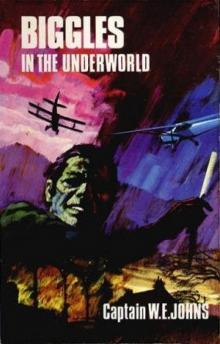 Biggles in the Underworld
Biggles in the Underworld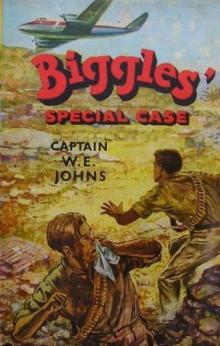 Biggles' Special Case
Biggles' Special Case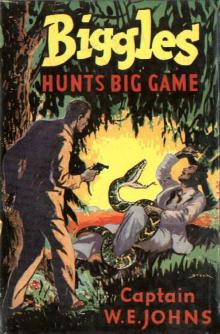 34 Biggles Hunts Big Game
34 Biggles Hunts Big Game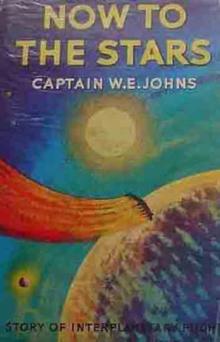 03 Now To The Stars
03 Now To The Stars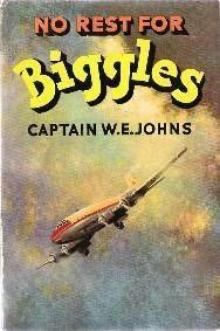 55 No Rest For Biggles
55 No Rest For Biggles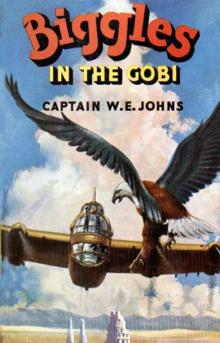 46 Biggles in the Gobi
46 Biggles in the Gobi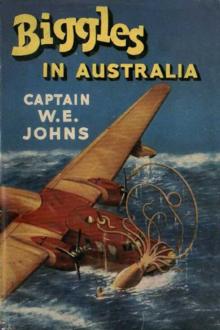 52 Biggles In Australia
52 Biggles In Australia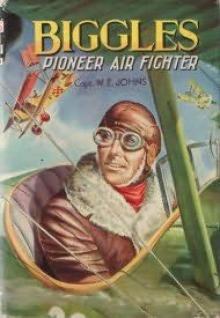 51 Biggles Pioneer Air Fighter
51 Biggles Pioneer Air Fighter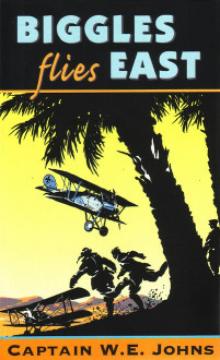 05 Biggles Flies East
05 Biggles Flies East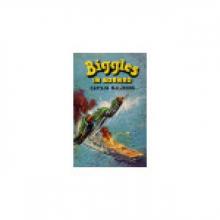 28 Biggles In Borneo
28 Biggles In Borneo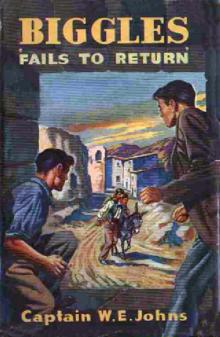 29 Biggles Fails to Return
29 Biggles Fails to Return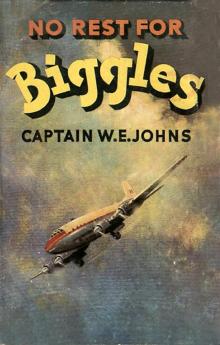 55 No Rest For Biggles (v2)
55 No Rest For Biggles (v2)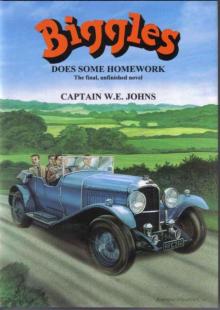 Biggles Does Some Homework
Biggles Does Some Homework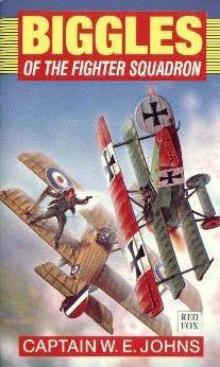 Biggles of the Camel Squadron
Biggles of the Camel Squadron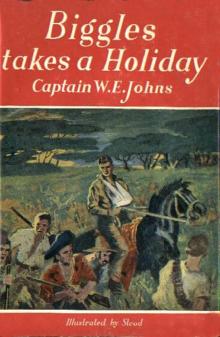 35 Biggles Takes A Holiday
35 Biggles Takes A Holiday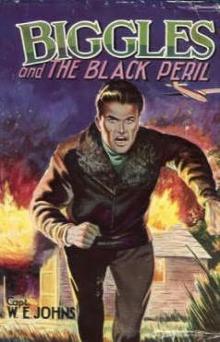 Biggles And The Black Peril (06)
Biggles And The Black Peril (06)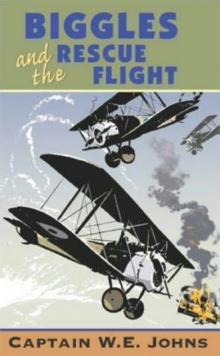 17 Biggles And The Rescue Flight
17 Biggles And The Rescue Flight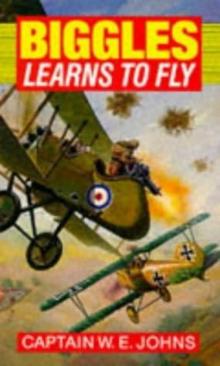 Biggles Learns To Fly
Biggles Learns To Fly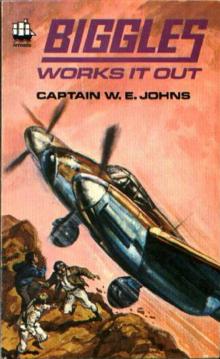 40 Biggles Works It Out
40 Biggles Works It Out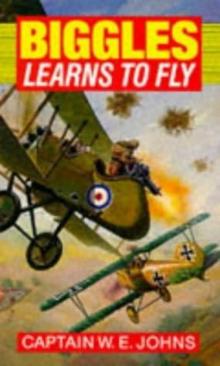 05 Biggles Learns To Fly
05 Biggles Learns To Fly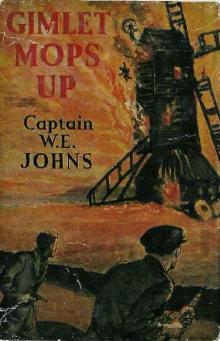 04 Gimlet Mops Up
04 Gimlet Mops Up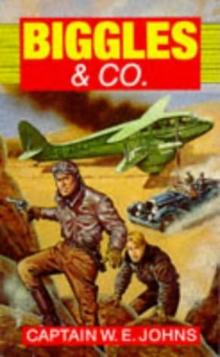 10 Biggles and Co
10 Biggles and Co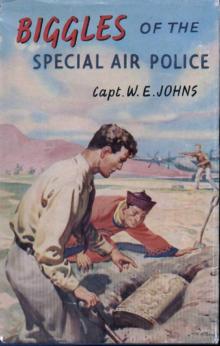 47 Biggles Of The Special Air Police
47 Biggles Of The Special Air Police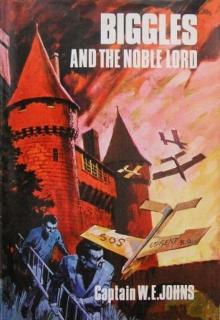 Biggles and the Noble Lord
Biggles and the Noble Lord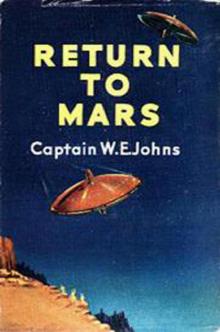 T2 Return To Mars
T2 Return To Mars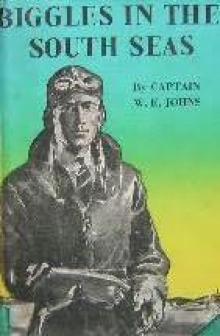 21 Biggles In the South Seas
21 Biggles In the South Seas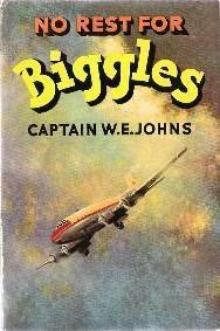 No Rest For Biggles
No Rest For Biggles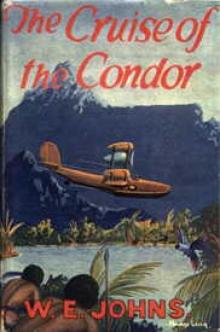 Biggles In The Cruise Of The Condor (02)
Biggles In The Cruise Of The Condor (02)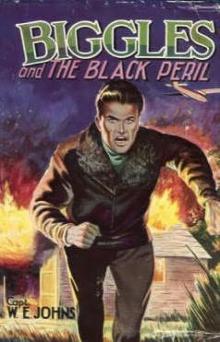 06 Biggles And The Black Peril
06 Biggles And The Black Peril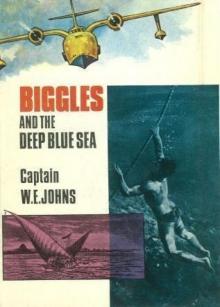 Biggles and the Deep Blue Sea
Biggles and the Deep Blue Sea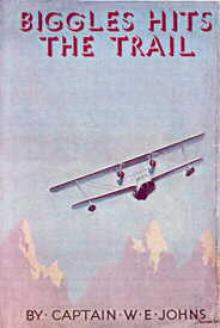 06 Biggles Hits The Trail
06 Biggles Hits The Trail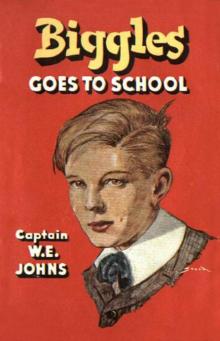 39 Biggles Goes To School
39 Biggles Goes To School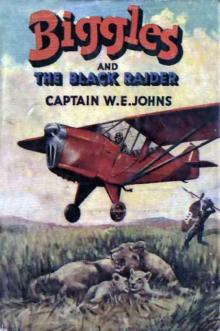 44 Biggles and the Black Raider
44 Biggles and the Black Raider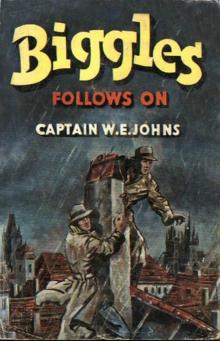 42 Biggles Follows On
42 Biggles Follows On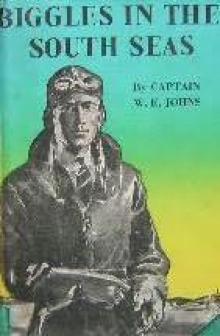 Biggles In the South Seas
Biggles In the South Seas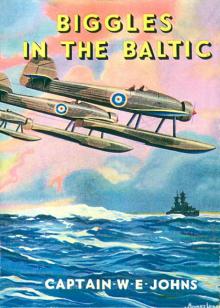 21 Biggles In The Baltic v3
21 Biggles In The Baltic v3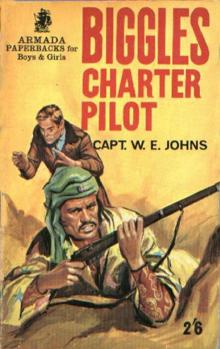 27 Biggles - Charter Pilot
27 Biggles - Charter Pilot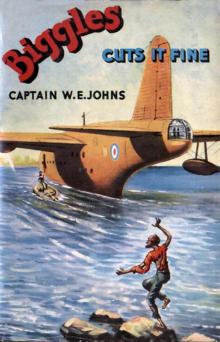 49 Biggles Cuts It Fine
49 Biggles Cuts It Fine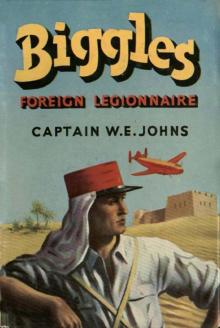 51 Biggles Foreign Legionaire
51 Biggles Foreign Legionaire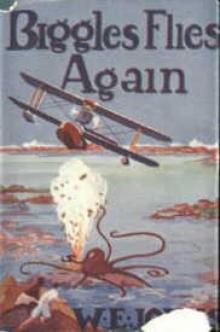 04 Biggles Flies Again
04 Biggles Flies Again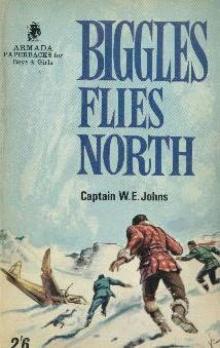 16 Biggles Flies North
16 Biggles Flies North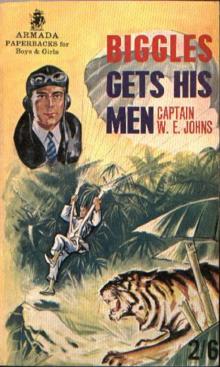 37 Biggles Gets His Men
37 Biggles Gets His Men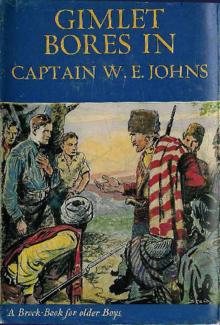 07 Gimlet Bores In
07 Gimlet Bores In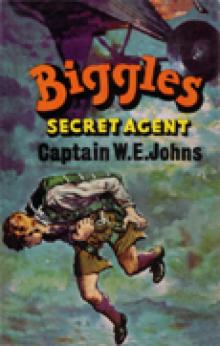 19 Biggles Secret Agent
19 Biggles Secret Agent 32 Biggles In The Orient
32 Biggles In The Orient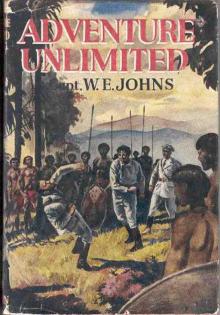 Adventure Unlimited
Adventure Unlimited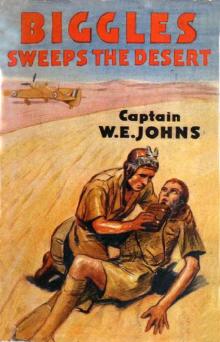 26 Biggles Sweeps The Desert
26 Biggles Sweeps The Desert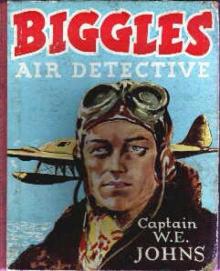 Biggles Air Detective (43)
Biggles Air Detective (43) 36 Biggles Breaks The Silence
36 Biggles Breaks The Silence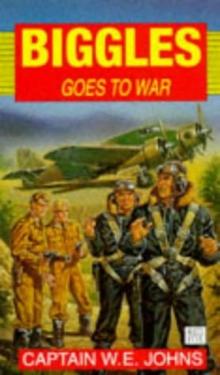 14 Biggles Goes To War
14 Biggles Goes To War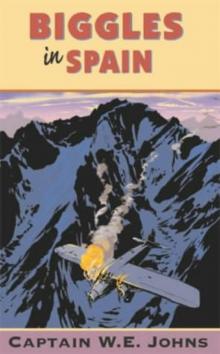 18 Biggles In Spain
18 Biggles In Spain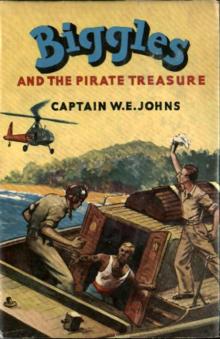 50 Biggles and the Pirate Treasure
50 Biggles and the Pirate Treasure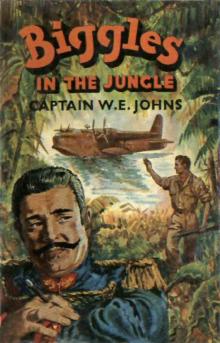 25 Biggles In The Jungle
25 Biggles In The Jungle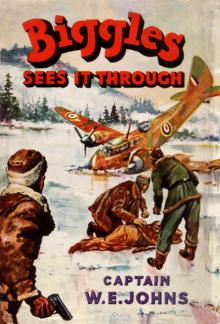 23 Biggles Sees It Through
23 Biggles Sees It Through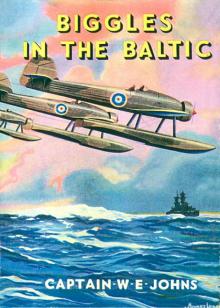 21 Biggles In The Baltic
21 Biggles In The Baltic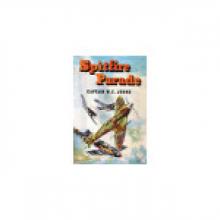 24 Spitfire Parade
24 Spitfire Parade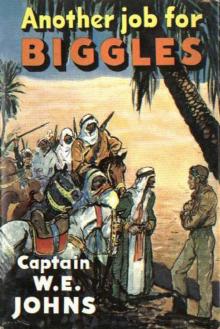 38 Another Job For Biggles
38 Another Job For Biggles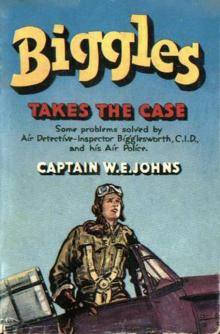 41 Biggles Takes The Case
41 Biggles Takes The Case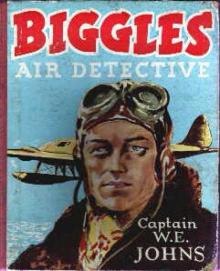 43 Biggles Air Detective
43 Biggles Air Detective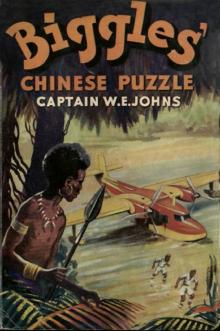 53 Biggles Chinese Puzzle
53 Biggles Chinese Puzzle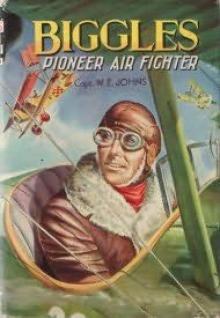 Biggles Pioneer Air Fighter (51)
Biggles Pioneer Air Fighter (51)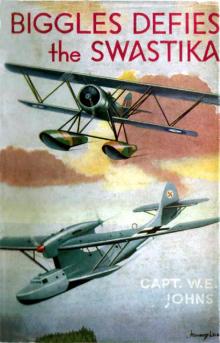 22 Biggles Defies The Swastika
22 Biggles Defies The Swastika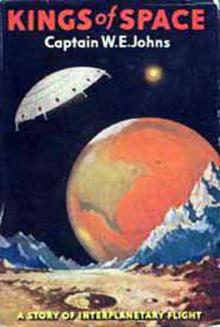 01 Kings Of Space
01 Kings Of Space